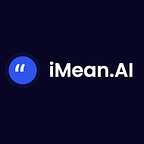WebCanvas: Revolutionizing Web Agent Benchmarking
In the rapidly evolving landscape of web technologies, the ability of web agents to adapt and perform reliably is more crucial than ever. Traditional benchmarks often fall short by focusing on static environments, which do not reflect the dynamic nature of the web. Enter WebCanvas, an innovative online evaluation framework designed to bridge this gap, providing a comprehensive solution for assessing web agents in real-time.
The Need for Dynamic Evaluation
Web agents are tasked with navigating complex web environments, completing tasks that involve user interface interactions and content retrieval. These tasks are complicated by frequent updates and changes to web elements, which can render static benchmarks obsolete. WebCanvas addresses this issue by introducing a dynamic evaluation framework that captures the real-world challenges faced by web agents.
Key Components of WebCanvas
WebCanvas is built on three main components that collectively ensure a robust and realistic assessment of web agents:
Novel Evaluation Metrics
WebCanvas introduces a novel metric system that focuses on critical intermediate actions or states necessary for task completion while filtering out noise from insignificant events. This is achieved through carefully annotated key nodes, which represent essential steps in a task’s workflow.
Mind2Web-Live Dataset
This dataset is a refined version of the original Mind2Web, containing 542 tasks and 2439 intermediate evaluation states. It provides a diverse and up-to-date benchmark for evaluating web agents’ performance in live environments.
Lightweight Annotation Tools
The framework includes generalizable annotation tools and testing pipelines that allow the community to maintain high-quality datasets and detect shifts in live-action sequences automatically.
Performance Insights
WebCanvas has already demonstrated its value through extensive testing. The best-performing agent in the initial experiments achieved a task success rate of 23.1% and a task completion rate of 48.8% on the Mind2Web-Live test set. This highlights both the potential and the current limitations of web agents in dynamic environments.
Community-Driven Development
One of WebCanvas's standout features is its collaborative approach. By open-sourcing the agent framework with extensible modules for reasoning, WebCanvas invites the research community to contribute insights and improvements. This community-driven model is designed to foster continuous advancements in the field of web agent evaluation.
Addressing Real-World Challenges
WebCanvas is particularly adept at handling the discrepancies that arise between offline and online evaluations. For instance, models that perform well in static settings often struggle in dynamic environments due to the lack of real-time feedback and adaptability. WebCanvas mitigates this by providing a real-time assessment framework that closely mirrors actual web conditions.
WebCanvas represents a leap towards more accurate and practical evaluation of web agents. By addressing the dynamic nature of web environments, it provides a more realistic and comprehensive benchmark that can drive the next generation of web agents. Researchers and developers are encouraged to participate in this ongoing project, contributing to the collective effort to advance the capabilities of autonomous web agents.
For more information and to contribute:
